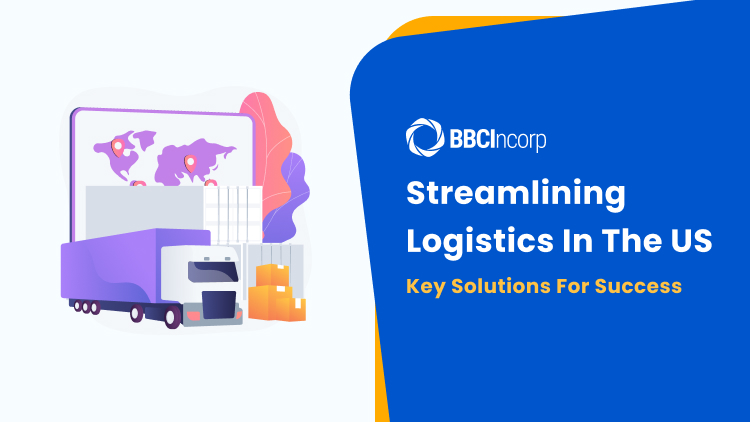
Table of Contents
The importance of logistics efficiency
Logistics efficiency is the backbone of a successful e-commerce operation, ensuring that products are delivered to customers quickly and at minimal cost.
With over 300 million internet users and a high demand for fast and convenient online shopping experiences, e-commerce companies must have streamlined logistics in place to meet customers’ expectations.
Enhancing customer experience
Efficient logistics are crucial for timely deliveries, which directly enhance customer satisfaction. When orders arrive promptly, customers are more likely to be satisfied, leading to repeat business and positive reviews.
Additionally, as the demand for same-day and next-day delivery rises, maintaining logistics efficiency becomes essential for meeting stringent deadlines and exceeding customer needs.
Financial implications
Optimizing logistics not only improves service but also reduces operational costs significantly. By minimizing errors, shortening shipping times, and enhancing inventory management, businesses can lower expenses, thereby increasing profitability.
This financial efficiency enables companies to implement competitive pricing strategies, making them more appealing to price-sensitive customers and potentially boosting market share.
Competitive edge
In the rapidly growing U.S. e-commerce market, efficient logistics operations are vital for maintaining competitiveness. Streamlined logistics not only cut costs but also enhance delivery times and reliability.
This capability allows businesses to differentiate themselves, expanding their market reach and scalability while becoming the preferred choice for consumers who value prompt and dependable service.
Key challenges in shipping to the U.S.
Shipping to America poses unique challenges that e-commerce businesses must effectively navigate for successful market entry and customer satisfaction.
Navigating complex customs regulations
For Asia businesses aiming to sell into the U.S. market, a solid understanding of U.S. customs regulations is vital for smooth operations and avoiding costly delays.
The U.S. customs regulatory framework is vast and complex. Key U.S. customs requirements include:
- Accurate and timely submission of customs declarations, which include key documents such as commercial invoice, packing list, and certificate of origin.
- Complying with import duties, taxes, and fees, which can vary depending on the type of product being shipped.
- Adhering to import restrictions and regulations for certain products, such as food items or chemicals.
Failure to comply with these regulations can result in costly fines or seizure of goods, causing delays in delivery and potential damage to the brand’s reputation.
Managing returns
Managing return shipments from customers in the U.S. can be challenging due to the distance and associated costs. E-commerce businesses must have a streamlined process for handling returns, including clear policies and communication with customers. They must also factor in logistics costs such as return shipping fees and restocking fees when determining return policies, to avoid potential losses.
Handling damaged goods
Due to the nature of shipping and handling, there is always a risk of goods arriving at the customer’s doorstep damaged or broken. This can be particularly troublesome for e-commerce businesses that are not physically present in the U.S.
To mitigate this risk, make sure you carefully consider your packaging methods and choose reliable shipping carriers with sufficient insurance coverage. In addition,you should also have protocols in place for addressing damaged goods, such as offering refunds or replacements to maintain customer satisfaction.
Best solutions for businesses to optimize logistics
When looking to optimize logistics for e-commerce, businesses can implement several key strategies to improve efficiency and reduce costs.
Adopting advanced technology
Advanced e-commerce solutions like automation, artificial intelligence, and data analytics can revolutionize logistics management. Predictive analytics helps forecast demand and optimize inventory, while automated systems streamline order fulfillment and tracking. Investing in technology not only enhances efficiency but also provides valuable insights for decision-making.
Fulfillment centers in the U.S.
Utilizing fulfillment centers within the U.S. can drastically reduce shipping times and costs. By positioning inventory closer to customers, businesses can leverage domestic shipping rates and faster delivery times. This approach not only enhances customer satisfaction but also increases the likelihood of repeat business.
Utilizing multiple shipping options
Relying on a single shipping carrier can be limiting. By utilizing multiple carriers, businesses can compare rates and delivery times, ensuring cost-effective and timely shipments. This flexibility also mitigates risks associated with carrier-specific disruptions and provides options for customer-preferred shipping methods.
Partnering with third-party logistics providers (3PLs)
Third-party logistics providers are invaluable allies in managing complex logistics operations. By partnering with 3PLs, businesses can outsource warehousing, inventory management, and shipping.
This not only frees up resources to focus on core business activities but also leverages the expertise and networks of the logistics provider for cost-effective and timely delivery solutions. 3PLs offer scalability, allowing businesses to adjust operations in response to market demand fluctuations.
Conclusion
Streamlining logistics is essential for e-commerce businesses aiming to succeed in the U.S. market. By enhancing customer experience, reducing costs, and gaining a competitive edge, efficient logistics can drive business growth.
Overcoming challenges such as complex customs regulations and geographical diversity requires adopting advanced technologies and collaborating with specialized logistics providers.
By implementing these strategies, e-commerce businesses can ensure smooth operations and achieve long-term success in the American market.
Disclaimer: While BBCIncorp strives to make the information on this website as timely and accurate as possible, the information itself is for reference purposes only. You should not substitute the information provided in this article for competent legal advice. Feel free to contact BBCIncorp’s customer services for advice on your specific cases.
Industry News & Insights
Get helpful tips and info from our newsletter!
Stay in the know and be empowered with our strategic how-tos, resources, and guidelines.





